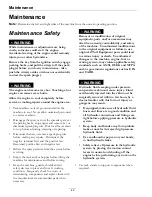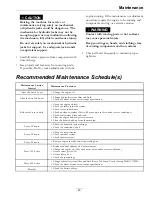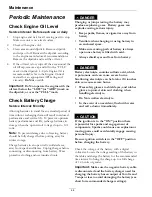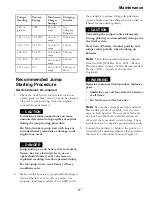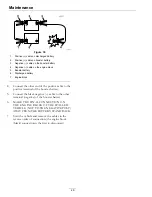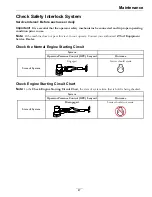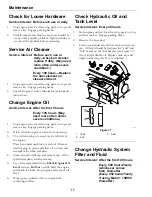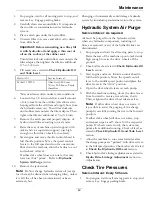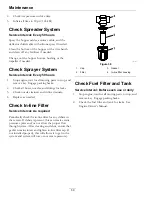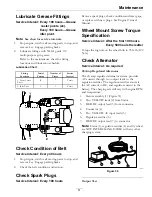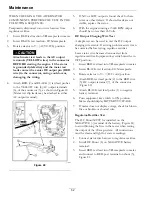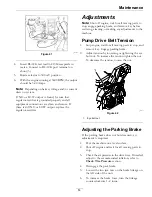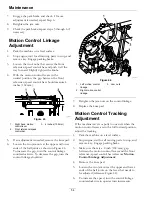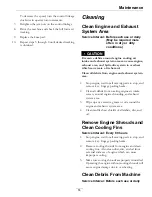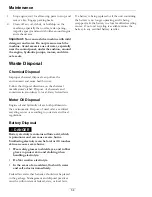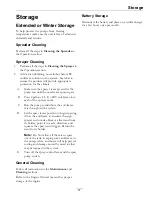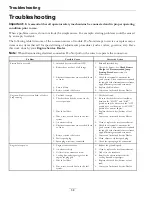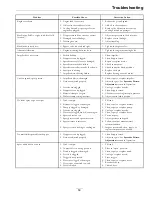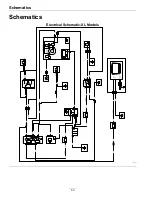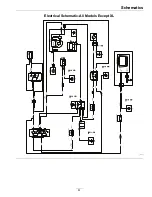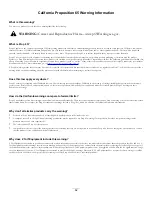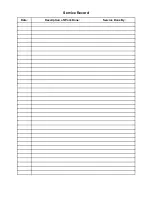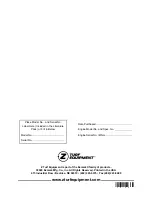
Maintenance
1.
Stop engine, wait for all moving parts to stop, and
remove key. Engage parking brake.
2.
Clean off any oil, debris, or build-up on the
machine, especially the nozzles, tank opening,
impeller, spray wand and its holder, around engine
and exhaust area.
Important:
You can wash the machine with mild
detergent and water. Do not pressure wash the
machine. Avoid excessive use of water, especially
near the control panel, under the cushion, around
the engine, hydraulic pumps, motors, and drive
axle seals.
Waste Disposal
Chemical Disposal
Improper chemical disposal can pollute the
environment and cause health issues.
Follow the disposal directions on the chemical
manufacturer’s label. Dispose of chemicals and
containers in accordance to local/state/federal laws.
Motor Oil Disposal
Engine oil and hydraulic oil are both pollutants to
the environment. Dispose of used oil at a certified
recycling center or according to your state and local
regulations.
Battery Disposal
DANGER
Battery electrolyte contains sulfuric acid, which
is poisonous and can cause severe burns.
Swallowing electrolyte can be fatal or if it touches
skin can cause severe burns.
•
Wear safety glasses to shield eyes, and rubber
gloves to protect skin and clothing when
handling electrolyte.
•
Do Not swallow electrolyte.
•
In the event of an accident, flush with water
and call a doctor immediately.
Federal law states that batteries should not be placed
in the garbage. Management and disposal practices
must be within relevant federal, state, or local laws.
If a battery is being replaced or if the unit containing
the battery is no longer operating and is being
scrapped, take the battery to a local certified recycling
center. If no local recycling is available return the
battery to any certified battery reseller.
56

